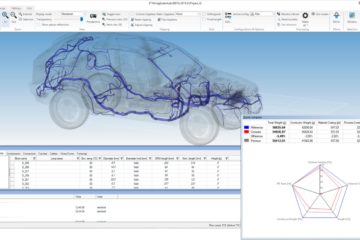All About English Grammar

Can you tell me what you need to do to improve your hold over the English subject? The simple way to do so is by improving your English grammar skills. Students who have an excellent grip over grammar can easily excel at this subject. Students must be taught the basics of grammar at a young age. A strong foundation will help them speak and write grammatically correct sentences.
The main purpose of this article is to introduce students to the basics of grammar. Once they have an idea about some of the most important grammatical concepts, it will help them understand when and how to use them. So, let us look at the various basic english grammar concepts that a student should know while they are young.
Basic Grammar Concepts
Here are some foundation concepts that teachers/parents should teach children as it will help them to have a better grip on English. Let’s have a look at them.
Nouns – The first chapter taught to any student who is being introduced to English grammar is the nouns. In simple terms, nouns refer to naming words, i.e., words that refer to names of a person, animal, place or thing. Nouns can be divided into five categories depending on the noun they denote. Let’s take a look at them.
- Common noun – Common noun refers to nouns that refer to the generic names of person, place, animal or things. For example, “The boy is playing in the park.” Here, both ‘boy’ and ‘park’ are examples of common nouns.
- Proper noun – Proper noun refers to nouns that refer to the specific names of a person, place, animal or things. For example, “The Eiffel Tower is in Paris.” Here, ‘Eiffel Tower’ and ‘Paris’ are examples of proper nouns.
- Collective noun – Collective nouns refer to those nouns that refer to a collection of things as a whole. For example, “The flock of sheep was grazing in the field.” Here, ‘flock’ is an example of a collective noun as it refers to a group of sheep.
- Abstract noun – According to Merriam Webster, abstract means “relating to or involving general ideas/qualities rather than specific things/actions/people”. Abstract nouns refer to those nouns that name the feelings, qualities, actions, ideas etc. These qualities, feelings, ideas, and actions can’t be touched or seen but can be felt.
- Concrete noun – In simple words, concrete means things that can be touched, felt and seen. So concrete nouns are those nouns that all of our five senses can feel. In other terms, concrete nouns are tangible in nature.
Verbs – The next important chapter that should be taught to students is the verbs. Verbs are words that describe actions; therefore, verbs can be known as doing words. As students go to higher classes, it’s important to learn about the various verb forms. There are five forms of verbs that you need to know.
- Root form of the verb – As the word, ‘root’ means ‘original’; therefore root form of verbs means the original or base form of the verbs. For example, “Please wear a cap.” Here, ‘wear’ is the base form of the verb ‘wear’.
- The third-person singular form of the verb – The third-person singular form of the verb is used to represent the simple present tense. The third-person singular form can be identified by adding an ‘s’ or ‘es’ to the end of the root verb.
- Present particle form of the verb – The present participle form of the verb can be formed by adding ‘ing’ at the end of the base form of the word. For example, “The boy is running.”
- The simple past form of the verb – This form of the verb is used to denote an action that has taken place in the past. Generally, ‘d’ or ‘ed’ is added at the end of the base form of the verb. However, in the case of irregular verbs, this rule isn’t followed.
- Past participle form of the verb – This form of the verb is similar to the simple past form of the verb.
Thus, this article will tell you all about the two most basic grammatical concepts. Teachers/parents must teach the students about these topics.














